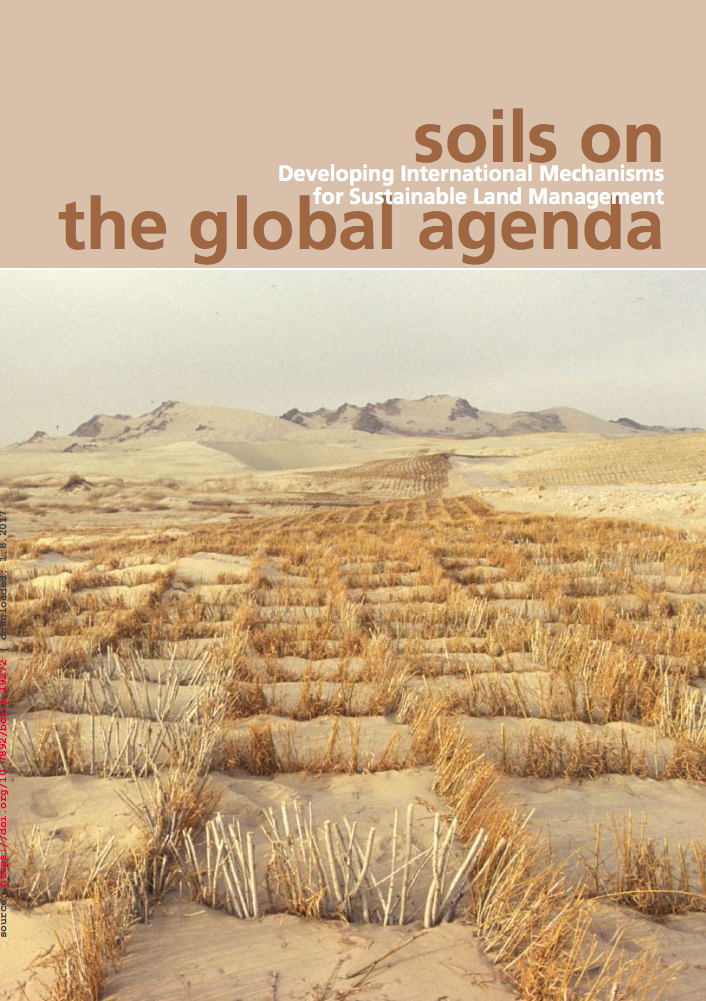What is AGRIS?
AGRIS (International System for Agricultural Science and Technology) is a global public database providing access to bibliographic information on agricultural science and technology. The database is maintained by CIARD, and its content is provided by participating institutions from all around the globe that form the network of AGRIS centers (find out more here). One of the main objectives of AGRIS is to improve the access and exchange of information serving the information-related needs of developed and developing countries on a partnership basis.
AGRIS contains over 8 million bibliographic references on agricultural research and technology & links to related data resources on the Web, like DBPedia, World Bank, Nature, FAO Fisheries and FAO Country profiles.
More specifically
AGRIS is at the same time:
A collaborative network of more than 150 institutions from 65 countries, maintained by FAO of the UN, promoting free access to agricultural information.
A multilingual bibliographic database for agricultural science, fuelled by the AGRIS network, containing records largely enhanced with AGROVOC, FAO’s multilingual thesaurus covering all areas of interest to FAO, including food, nutrition, agriculture, fisheries, forestry, environment etc.
A mash-up Web application that links the AGRIS knowledge to related Web resources using the Linked Open Data methodology to provide as much information as possible about a topic within the agricultural domain.
Opening up & enriching information on agricultural research
AGRIS’ mission is to improve the accessibility of agricultural information available on the Web by:
- Maintaining and enhancing AGRIS, a bibliographic repository for repositories related to agricultural research.
- Promoting the exchange of common standards and methodologies for bibliographic information.
- Enriching the AGRIS knowledge by linking it to other relevant resources on the Web.
AGRIS is also part of the CIARD initiative, in which CGIAR, GFAR and FAO collaborate in order to create a community for efficient knowledge sharing in agricultural research and development.
AGRIS covers the wide range of subjects related to agriculture, including forestry, animal husbandry, aquatic sciences and fisheries, human nutrition, and extension. Its content includes unique grey literature such as unpublished scientific and technical reports, theses, conference papers, government publications, and more. A growing number (around 20%) of bibliographical records have a corresponding full text document on the Web which can easily be retrieved by Google.
Members:
Resources
Displaying 7846 - 7850 of 9579Pro-poor growth in agriculture and the land question in Malawi
Malawi has pursued an agricultural-led development strategy since its Independence in 1964. This agricultural-led development strategy was based on the promotion of a dual agricultural system comprising estate (large-scale) production mainly for cash (export) crops and smallholder agricultural production mainly to support the food security needs of the population. After four decades of agricultural-led development strategies in post-Independence Malawi, economic growth has been erratic and a large proportion of the population lives below the poverty line.
Agrarian reform in the context of food sovereignty, the right to food and cultural diversity: “land, territory and dignity”
Through an analysis of the right to adequate food and the right to land, this civil society report, argued that achieving food sovereignty requires agrarian reform.
Soils on the global agenda: developing international mechanisms for sustainable land management
This report contributes to the aim of the International Union of Soil Sciences to put sustainable land management higher on the global agenda. The report is divided into three distinct sections:Part I discusses the global soils agenda and outlines experiences and strategies for sustainable land management. It also highlights challenges related to implementing this agenda globallyPart II presents summaries of papers on the development of international mechanisms and instruments for sustainable land management (SLM).
Land rights reform and governance in Africa
The main argument of this paper is that insecurity of land tenure is a socio-political condition that can be made and unmade. This discussion paper focuses on customary land rights, particularly in the African context.
The unresolved land reform debate: beyond state-led or market-led models
Sharp inequalities in the distribution of land remains a major cause of extreme poverty in many developing countries. Some instances are the result of ownership patterns inherited from colonial administrations, others are linked to the struggle for economic prosperity in the post-independence era.Landlessness is therefore a significant problem for the rural poor. Most remedies that have been undertaken previously have not yielded positive results, as can be witnessed in Southern Africa today.



